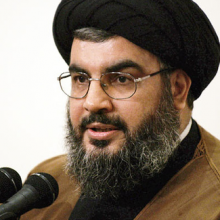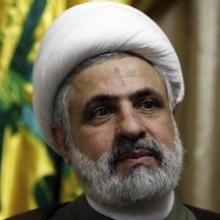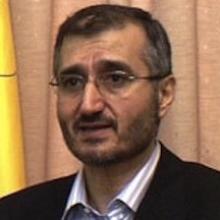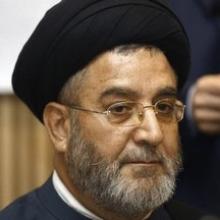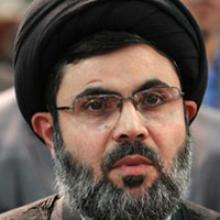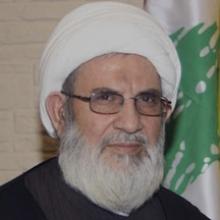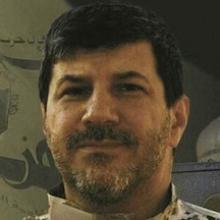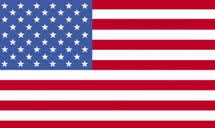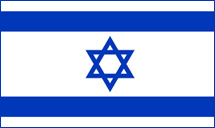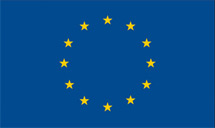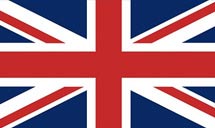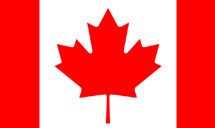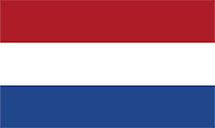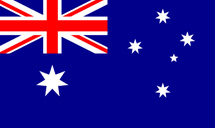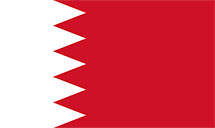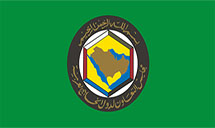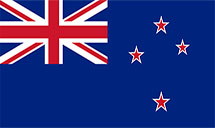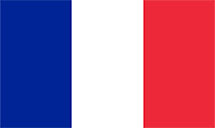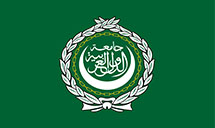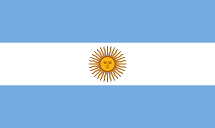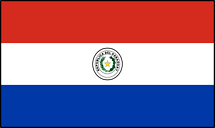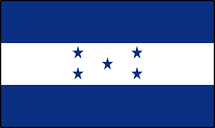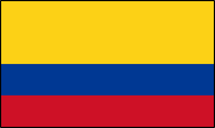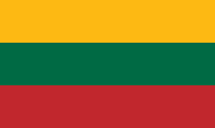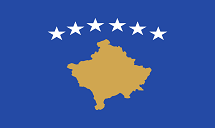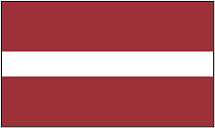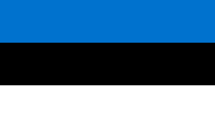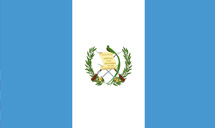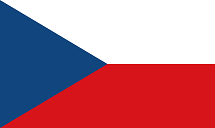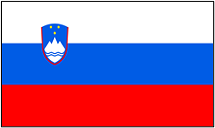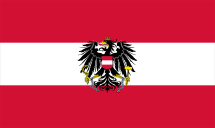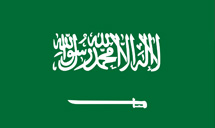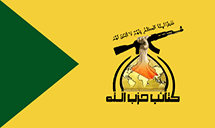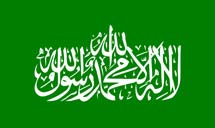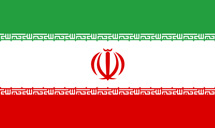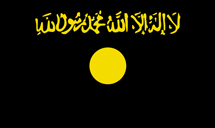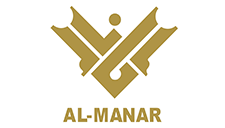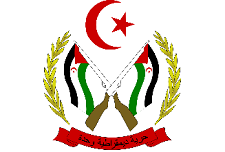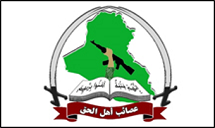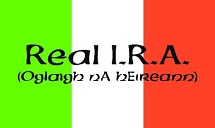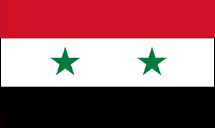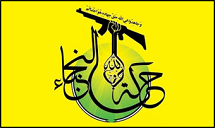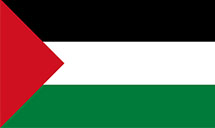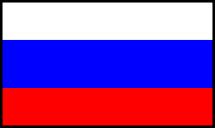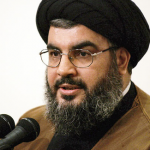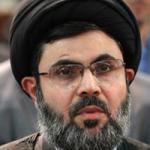Executive Summary:
Iran helped create the terrorist group Hezbollah in Lebanon in the early 1980s in order to expand its influence in the region. Under the pretense of fighting foreign occupiers in Lebanon, Hezbollah has been responsible for murderous terror attacks against Israeli, American, and Jewish targets around the globe. Despite its rhetoric of freeing Lebanon from foreign occupation, Hezbollah has made no secret that it is heavily supported by foreign powers, namely the Islamist Iranian regime.
Iran has transferred mass quantities of weapons, fighters, and other supplies to Hezbollah through its Islamic Revolutionary Guards Corps, using Syria as a transfer point. It has been responsible for transferring thousands of rockets, which Hezbollah has used against Israeli civilians, notably in the 2006 Second Lebanon War which was sparked by a Hezbollah cross-border raid that resulted in the deaths of eight soldiers and capture of two others. In addition to its violently anti-Israel position, Hezbollah’s loyalty to Iran and Syria has translated into Hezbollah involvement on behalf of the embattled Syrian regime in that country’s civil war.
Like Iran, Hezbollah considers the United States and Israel to be its chief enemies, which has led to a global terrorist campaign against the two nations. Until September 11, 2001, Hezbollah was responsible for killing more Americans than any other terrorist organization. Among other deadly attacks, Hezbollah has been linked to the 1983 attack on U.S. Marine barracks in Lebanon; the 1992 suicide bombing at the Israeli embassy in Buenos Aires, Argentina; the 1994 suicide bombing of the Argentine Jewish Mutual Association in Buenos Aires; and the 2012 bombing of an Israeli tourist bus in Bulgaria. Hezbollah is also suspected of involvement in the February 2005 Beirut suicide bombing that killed 22 people, including former Lebanese Prime Minister Rafik Hariri. In August 2020, the Special Tribunal for Lebanon found Hezbollah member Salim Ayyash guilty of participation in the attack.
Further complicating Hezbollah’s status, the terror group has woven itself into Lebanon’s social fabric, setting up charities and providing services in the southern part of the country where government authority is weaker. These social services have boosted Hezbollah’s popularity enough to allow it to become part of the Lebanese political structure. Since 1992, Hezbollah has had a presence and outsized influence in the elected government.
Hezbollah is a key political actor within Lebanon. Hariri’s 2005 death sparked an internal revolution—dubbed the Cedar Revolution—in Lebanon that led to the withdrawal of occupying Syrian forces and the creation of pro-Syrian and anti-Syrian political factions in Lebanon’s parliament. Hezbollah’s political party leads the pro-Syrian March 8 faction, which also include the Shiite Amal party and the Christian-aligned Free Patriotic Movement (FPM). Though it is itself a smaller party in the parliament, Hezbollah’s political party has stalled the creation of governing coalitions and caused their downfall through the withdrawal of Hezbollah support. In October 2016, the Lebanese government elected Hezbollah political ally Michel Aoun as president. In May 2018, Hezbollah and its political allies won 70 of Lebanon’s 128 parliamentary seats in the country’s first parliamentary elections since 2009. Hezbollah ministers held only two cabinet positions in Lebanon’s government announced in January 2020, but the new government was widely viewed as allied with the terror group due to its inclusion of Hezbollah-allied parties. After a year-long political stalemate, Hezbollah-supported Prime Minister-designate Najib Mikati announced a new Lebanese government on September 10, 2021, which included two ministers nominated by Hezbollah and a third Hezbollah minister nominated by the Amal party. However, while Hezbollah kept its 13 seats in Lebanon’s parliament during the country’s May 15, 2022, elections, its allied political bloc lost its majority in the parliament.
In 2013, the European Union branded Hezbollah’s armed wing a terrorist organization but distinguished it from Hezbollah’s political wing. Ahead of the designation, Europe’s leaders were divided over the label out of fear of complicating their relationships with Lebanon. Though the EU distinguished between Hezbollah’s political and armed wings, the terror group considers itself a singular organization, and its leadership has continued to pursue a terrorist agenda with Iranian aid. In early 2020, Germany joined the United Kingdom and the Netherlands in designating Hezbollah in its entirety as a terrorist group. Argentina, Paraguay, Guatemala, Honduras, and Colombia also designated Hezbollah as a terrorist organization in 2019 and 2020. Latvia, Estonia, the Czech Republic, Slovenia, and Austria designated Hezbollah as a whole in 2020 and early 2021. In July 2021, members of the U.S. House of Representatives called on the European Union to also designate Hezbollah in its entirety.
Doctrine:
The Shiite terrorist group Hezbollah (“the Party of God”) emerged in Lebanon in 1982 following Israel’s invasion to halt cross-border guerilla attacks by the Palestine Liberation Organization. Hezbollah’s stated goal was to fight “for the liberation of the occupied territories and the ejection of the aggressive Israeli forces.” Its ideology was modeled on Ayatollah Ruhollah Khomeini’s 1979 Iranian revolution. As counterterrorism expert Matt Levitt notes, within the setting of the Lebanese civil war, “the 1982 Israeli invasion and subsequent occupation of southern Lebanon created the space in which Iranian diplomats and agents could help fashion the unified entity Hezbollah from a motley crew of Shi’a militias and groups.” Iran thus viewed the rise of Hezbollah as an opportunity to extend its influence, cultivating Hezbollah as a proxy force, providing funding, training, and weaponry through Iran’s Islamic Revolutionary Guard Corps (IRGC).
Hezbollah pledged its loyalty to Iran’s Supreme Leader Ayatollah Ruhollah Khomeini and modeled its ideology on Khomeini’s 1979 Iranian revolution. According to counterterrorism expert Matthew Levitt, within the setting of the Lebanese civil war, “the 1982 Israeli invasion and subsequent occupation of southern Lebanon created the space in which Iranian diplomats and agents could help fashion the unified entity Hezbollah from a motley crew of Shi’a militias and groups.”
Iran thus viewed the rise of Hezbollah as an opportunity to extend its influence, cultivating Hezbollah as a proxy force, providing funding, training, and weaponry through Iran’s Islamic Revolutionary Guard Corps (IRGC).
Allegiance to Iran
Hezbollah is first and foremost an instrument of the Iranian regime. The group’s 1985 manifesto explicitly states, “We are the sons of the umma (Muslim community)—the party of God (Hizb Allah) the vanguard of which was made victorious by God in Iran.” Furthermore, the group is explicit in its submission to the Iranian supreme leader’s decrees, avowing its compliance to the dictates of “one leader, wise and just, that of our tutor and faqih (jurist) who fulfills all the necessary conditions: [Ayatollah] Ruhollah Musawi Khomeini.”
Hezbollah is devout is in its adherence to Khomeini’s philosophy of vilayat-e faqih (rule of the Islamic jurist), which calls for the absolute rule of a single jurist over religious and state affairs. Khomeini used the concept to seize absolute power as Iran’s supreme leader, and Hezbollah pledged its allegiance to Khomeini and his successor, Ali Khamenei. In a 2012 interview, Hezbollah’s Deputy Secretary-General Naim Qassem called vilayat-e faqih “the reason for Hezbollah’s establishment.” According to Qassem, in 1982, the so-called Committee of Nine—the predecessor to Hezbollah’s Shura Council—sent a delegation to receive Khomeini’s blessing in Tehran. According to the account of Hezbollah Secretary-General Hassan Nasrallah, Khomeini told them to “rely on God” and “spoke of victories that we now see.”
After that 1982 meeting, Iran reportedly sent 1,000 IRGC soldiers to provide military training, and in February 1985, Hezbollah formally emerged and issued its manifesto. Hezbollah pledged loyalty to Khomeini, demanded the expulsion of foreign forces (i.e., Israel, France, and the U.S.) from Lebanon, called for Israel’s destruction, and called for the creation of an Islamic state in Lebanon.
As an Iranian proxy, Hezbollah’s perceived threat environment is almost identical to Iran’s—Tehran’s enemies are Hezbollah’s enemies. Like Iran, Hezbollah considers the U.S. and Israel to be its chief foes. The group’s manifesto describes the U.S. as the root of abomination and declares that its “determination to fight the U.S. is solid.” Among Hezbollah’s earliest major attacks on U.S. and Western interests was the 1983 truck bombing at a U.S. Marine compound in Beirut, which killed 241 U.S. service members. The group also carried out a simultaneous truck bombing on French forces in Beirut, killing 58 soldiers.
Since Khomeini’s 1989 death, Hezbollah has maintained its allegiance to the Iranian supreme leader’s successor, Khamenei. For example, Hezbollah and the IRGC’s external wing, the Quds Force, reportedly agreed in January 2010 to cooperate in attacking Israeli, U.S., and Western targets. In 2012, Hezbollah pledged to defend Iran against any attack by the United States or Israel. The group has also joined the IRGC in its ongoing fight to support the Assad regime in Syria. During an October 2016 Hezbollah rally in Beirut, many of the thousands of Hezbollah supporters in attendance reportedly wore pictures of Khamenei in their headbands. In turn, Khamenei has pledged Iran’s continued support for Hezbollah, which he had called a “source of honor for the Muslim world” earlier in the year.
According to Subhi al-Tufayli, Hezbollah’s first secretary-general from 1989 to 1991, Iran has supported Hezbollah in order to expand its own influence in the region. “There is no voice within Lebanon’s Shia community that is not tied to Iran,” he told the London-based Arab Weekly in May 2016.
Anti-Israel Stance
Hezbollah claims that it is in confrontation with Israel, “the Zionist entity,” which it maintains is built on land aggressively “wrested from” its rightful owners while Israel trampled “the rights of the Muslim people.” Hezbollah refuses to accept any ceasefires, treaties, or peace agreements, and sees only one end to its “struggle” against Israel, namely “when this entity is obliterated.” In a May 2020 interview with Iranian media, Hashem Safieddine, head of Hezbollah’s executive assembly, declared the primary goal of Iran’s so-called resistance groups is to liberate Jerusalem and all Muslims have a “duty” to prepare for that confrontation.
Hezbollah has been linked to numerous terrorist attacks against Israeli and Jewish targets since its inception, including: the 1992 suicide bombing at the Israeli embassy in Buenos Aires, Argentina, which killed 29 and injured 240; the 1994 suicide bombing of the Argentine Jewish Mutual Association (AMIA) in Buenos Aires, killing over 80; and the 2006 cross-border attack in which Hezbollah operatives killed eight Israeli soldiers and abducted two more, launching a summer war with Israel.
In May 2000, Israel withdrew its forces from its security zone in southern Lebanon to internationally recognized borders, the so-called Blue Line. Following Israel’s withdrawal, Hezbollah justified its continued reliance on terrorism by arguing that Israel still occupied seven villages in the Golan Heights along the border known as the Shebaa Farms. This area was part of Syria when Israel took the territory during the 1967 war, and the U.N. recognized Shebaa Farms in 1974 as occupied Syrian territory. Syria and Hezbollah contend that while the Shebaa Farms is located in the Golan Heights, it actually sits on land considered to be Lebanese territory. This depiction has provided Hezbollah with a justification to thus “liberate” the territories from Israel.
In November 2009, Hezbollah created a new political manifesto that identified the United States as “the centre of polarization and hegemony in the world” and reaffirmed its opposition to Israel, which it identified as “a constant threat and an impending danger to Lebanon.” According to the manifesto, the United States is committed to “dominating the nations politically, economically, culturally and through all aspects,” which leaves only “the choice of resistance.” The manifesto further asserts that Israel “embodies an eternal threat to Lebanon - the State and the entity - and a real hazard to the country in terms of its historical cravings in land and water….” Moreover, “The ‘Israeli’ threat to this country started since the establishment of the Zionist entity in the land of Palestine, an entity that did not falter to divulge its aspirations to occupy some parts of Lebanon and to grasp its wealth, mainly its water… This entity began its aggression on Lebanon since 1948 from the border to the depth of the country….”
Hezbollah’s updated manifesto renewed its commitment to terrorism, couched in the language of “resistance” to Israel. “Resistance” was elevated to the status of a national responsibility, extended to all Lebanese citizens. According to the manifesto, “The Resistance role is a national necessity as long as the ‘Israeli’ threats and aspirations persist.” Hezbollah called for Lebanon to “approve a defensive strategy that depends on a popular resistance” to defend the country against “the ‘Israeli’ threat.”
Citing Hezbollah’s victory in the Syrian civil war, Hezbollah leader Hassan Nasrallah announced in December 2017 that his group would refocus its energies against Israel. Nasrallah called on Hezbollah’s allies to create a united strategy “in the field” with which to confront Israel.
Syria, ISIS, and the Broader Middle East
As an Iranian proxy, Hezbollah has taken up arms alongside Syrian and Iranian forces in defense of the Syrian regime in that country’s civil war. In 2012, the U.S. Treasury levied additional sanctions on Hezbollah for its support of Syrian President Bashar al-Assad’s regime. According to Treasury, since the beginning of the Syrian civil war in early 2011, Hezbollah provided “training, advice and extensive logistical support to the Government of Syria’s increasingly ruthless efforts to fight against the opposition.”
Subhi al-Tufayli, Hezbollah’s first secretary-general from 1989 to 1991, has accused Hezbollah of being a “partner in the killing of the Syrian people.” He denounced Hezbollah members who fight alongside Russians, and called on the Hezbollah leadership to heed Lebanese opposition to the group’s involvement in Syria.
Hezbollah’s role in Syria is not limited to fighting anti-government rebels. Under Iranian direction, Hezbollah has also fought against ISIS, which Nasrallah described as a growing threat to the region and an existential threat to Lebanon in an August 2014 interview with the Lebanese newspaper Al-Akhbar. Hezbollah has also fought against the Nusra Front (Jabhat Fateh al-Sham). On October 19, 2016, Qassem told Hezbollah’s Al-Manar TV that Hezbollah “will not leave Syria as long as there is a need to confront takfiri groups.” In September 2017, Nasrallah declared victory in Syria. “We have won in the war,” he said, according to Al-Akhbar. Nonetheless, in June 2018, Lebanese parliamentary speaker Nabih Berri, of the Hezbollah-allied Amal movement, told Russian media that Hezbollah and Iran would remain in Syria until it is “fully liberated from terrorists.” In September 2018, Nasrallah declared that Hezbollah would remain in Syria indefinitely with the Syrian government’s permission.
Israel has launched several airstrikes against the group’s suspected supply chain in Syria. In January 2015, Nasrallah called Israeli airstrikes on alleged weapons shipments to Hezbollah in Syria an aggression against Syria’s regional allies. As such, Syria’s allies have the right to retaliate, according to Nasrallah. Israel has since continued to strike against Syrian and Iranian targets suspected of arming Hezbollah in the country.
Hezbollah’s participation in Syria has also resulted in an increasingly antagonistic role vis-à-vis the Middle East’s Sunni Arab nations, which oppose Iran’s regional ambitions. The Gulf Cooperative Council (GCC) labeled Hezbollah a terrorist group in March 2016 because of its “hostile acts” against GCC member states, recruitment for “terrorist attacks, smuggling weapons and explosives, stirring up sedition and incitement to chaos and violence,” and participation in the Syrian civil war. The Arab League also labeled Hezbollah a terrorist group that month, accusing Hezbollah and the IRGC of financing and training terrorist groups and interfering in regional affairs. The GCC had previously sanctioned Hezbollah in 2013 for its role in Syria. On November 19, 2017, the Arab League again condemned Hezbollah as a terrorist organization, citing its regional disruption efforts on behalf of Iran. Bahraini Foreign Minister Khalid bin Ahmed Al-Khalifa accused Hezbollah of “full control” over Lebanon and called for accountability of “countries where Hezbollah is a partner in government responsible, specifically Lebanon.”
Iran’s support for Hezbollah and Hezbollah’s influence in the Lebanese government has strained Lebanon’s relations with Gulf states opposed to Iran. Saudi Arabia, Kuwait, and Bahrain expelled Lebanon’s ambassadors and banned Lebanese imports in October 2021 after Hezbollah-allied Lebanese Information Minister George Kordahi criticized Saudi Arabia’s conflict with Iran-backed Houthi rebels in Yemen. Hezbollah has also stepped up its rhetoric against the Saudi monarchy. In September 2016, Nasrallah declared Saudi Arabia’s Wahhabi ideology to be “more evil than Israel.” Thousands of Hezbollah supporters at an October 2016 rally reportedly chanted “Death to the Al Saud,” referring to Saudi Arabia’s ruling family. During a January 3, 2022, televised address, Nasrallah accused Saudi Arabia’s King Salman bin Abdul Aziz of exporting ISIS’s ideology and providing cars for suicide attacks in Iraq. Nasrallah further accused Saudi Arabia of participating in a wider conspiracy to destroy the Middle East. Lebanese Prime Minister Najib Mikati’s office soon after issued a statement distancing the Lebanese government from Nasrallah’s address.
After the January 2020 death of Quds Force commander Qasem Soleimani in a U.S. airstrike in Iraq, Iran reportedly tasked Hezbollah with uniting the Iran-backed Shiite Iraqi militias that had previously answered to the Quds Force. The U.S.-designated Hezbollah agent Mohammed al-Kawtharani began overseeing the militias operating in Iraq. Kawtharani has acted as a conduit for training, funding, and other forms of Hezbollah support to Iraqi Shiite militias. According to the U.S. government, Kawtharani assisted in the transport of fighters from Iraq to Syria to support the Assad regime. Kawtharani also helped secure the release of senior Hezbollah commander Ali Mussa Daqduq from Iraqi custody in 2012. According to the U.S. government, Kawtharani has “taken over some of the political coordination of Iran-allied paramilitary groups” in Iraq and “facilitates the actions of groups outside the control of the Government of Iraq that have violently suppressed protests, attacked foreign diplomatic missions, and engaged in wide-spread organized criminal activity.” The Associated Press reported in July 2021 that Iraqi militant commanders also meet regularly in Lebanon with Nasrallah.
Social Role
While Hezbollah promotes itself as a guardian of Lebanon against foreign invaders, it also provides social services to the Lebanese people in areas where the government lacks a strong presence, such as in the south. To maintain popular support, Hezbollah aims to demonstrate it can provide for the Lebanese people in areas where the Lebanese state has failed. For example, in 2004, Hezbollah provided $100,000 a month to the al-Janoub Hospital in the southern Lebanese city of Nabatiyah. After the 2006 Hezbollah-Israel war, Lebanese citizens quickly forgot that Hezbollah instigated the conflict as the organization provided money for housing and welfare. “We have ideology and support. Our success can be seen in the peaceful existence between the Lebanese army and the military wing of Hezbollah,” said Hezbollah member Mohammed Ghosen. In April 2021, Hezbollah opened a chain of discount supermarkets in Lebanon called “Al-Sajjad,” after the Shiite cleric Imam Ali Al-Sajjad. Shopping in the stores requires a Hezbollah-issued store card, which is only available to patrons who earn less than 1,500,000 Lebanese pounds (approximately $125) per month. Former Lebanese justice minister Ashraf Rifi has called Hezbollah an enemy of the Lebanese state, while comparing Iran to Nazi Germany. According to Rifi, Hezbollah is determined to tear down the Lebanese state system. Nonetheless, despite international sanctions on Lebanon’s banking system due to Hezbollah links, the group continues to promote itself to the Iranian people as a functioning alternative to state-run systems.
Political Role
Hezbollah has played a major role in Lebanese politics since 1992. Subhi al-Tufayli, Hezbollah’s first secretary-general from 1989 to 1991, said in May 2016 that Hezbollah has complete control over Lebanon’s army, which “must follow wherever Hezbollah leads.” Though Hezbollah had only two cabinet ministers in Lebanon’s new government announced in January 2020, the government primarily comprised Hezbollah allies. Western-backed political parties that had previously dominated Lebanon’s government were left out of the cabinet composition.
Hezbollah entered Lebanon’s political arena in 1992, when it won eight of the country’s 128 parliamentary seats in elections. In 2005, Hezbollah won 23 seats, claiming a massive victory in southern Lebanon. In 2008, Lebanese Prime Minister Fouad Siniora banned Hezbollah’s private telecommunications network, sparking clashes between Hezbollah fighters and Lebanese soldiers. After two weeks of fighting, Qatar negotiated the Doha Agreement, which called for a national-unity government and granted the Hezbollah-led opposition veto power in the Lebanese government. This essentially gave Hezbollah the ability to bring the government to a complete halt should it veer from Hezbollah’s agenda. In the 2009 election, Hezbollah and its allies were defeated by the U.S.-supported “March 14” alliance. Many were surprised by this result.
In January 2011, Hezbollah ministers resigned from the government shortly before the U.N.-backed Hariri tribunal was expected to issue indictments of four Hezbollah members over the assassination of former Lebanese prime minister Rafik Hariri in 2005. The resignations led to the collapse of the government led by Hariri’s son, Saad Hariri. In late January 2011, the Hezbollah-backed businessman Najib Mikati was appointed as the new prime minister. In the new (what some commentators referred to as) “Hezbollah government,” Hezbollah received two portfolios as part of the 30-member strong government. The majority of the remaining ministers were from Hezbollah-allied factions.
Lebanese Prime Minister Tammam Salam formed a new unity government in February 2014, awarding Hezbollah and the Sunni-led bloc of former prime minister Saad Hariri eight portfolios each. Among other ministries, Hezbollah controlled the foreign ministry and ministry of industry. On October 31, 2016, Lebanon’s parliament elected MP Michel Aoun as president. Aoun is a former general and Maronite Christian who heads the Free Patriotic Movement, which allied with Hezbollah in 2006.Lebanon had been without a president since May 2014, and some Lebanese MPs blamed Hezbollah for preventing the government’s approval of a new president.
In May 2018, Lebanon held parliamentary elections for the first time since 2009. Hezbollah’s parliamentary representation remained steady at 13 seats, but Hezbollah and its allies altogether won a total of 70 of the parliament’s 128 seats. The anti-Hezbollah ruling Future movement saw a decrease from 33 to 21 seats, though its leader, Hariri, maintained his role as prime minister. Hezbollah leaders spoke of a larger influence in an as-yet-to-be-formed government coalition. Nasrallah called the results “a political and moral victory” for Hezbollah that would guarantee the protection of “the resistance.”
Prime Minister Saad Hariri resigned in October 2019 after two weeks of nationwide protests against government corruption. Aoun appointed academic and former education minister Hassan Diab as the new prime minister in December 2019. In January 2020, Diab announced the formation of a government that included two Hezbollah ministers and members of Hezbollah-allied parties. Hezbollah received the portfolios for the Ministry of Health and the Ministry of Industry. Hariri’s Future Movement and other pro-Western parties remained outside of the cabinet, drawing international concern that Hezbollah’s agenda would dominate Lebanon’s new cabinet. Diab dissolved the government on August 10, 2020, after two days of anti-government protests following an August 4 explosion at Beirut’s port that killed at least 200 and wounded more than 6,000. Aoun designated Lebanon’s ambassador to Germany, Mustapha Adib, as the country’s new prime minister on August 31. Adib’s attempts to quickly form a government were delayed by Hezbollah’s demands for several ministries, leading Adib to resign on September 26. Lebanon’s political parties appointed Hariri as prime minister-designate on October 22, though he was not supported by Hezbollah.
Lebanon had still yet to form a government by the end of July 2021. Hezbollah denied it was intentionally delaying the process and claimed it would cooperate with any proposed government. In February 2021, FPM head Gebran Bassil called for a review of his party’s 2006 agreement with Hezbollah. According to FPM’s political council, while the agreement had protected Lebanon from outside attacks and deterred Israel, it had not succeeded in reinforcing rule of law or building Lebanon. After almost nine months of failing to form a government, Hariri resigned as prime minister on July 15, 2021. Later that month, Hezbollah supported the parliamentary nomination of former prime minister Najib Mikati to be the new prime minister. Mikati pledged to form a government of technocrats, while Hezbollah claimed it would not stand in his way. Lebanese leaders agreed on a new Mikati-led government on September 10, 2021. Hezbollah nominated two ministers in the new 24-member government—Agriculture Minister Abbas Al Hajj Hassan and Public Works and Transport Minister Ali Hamieh. The Hezbollah-aligned Amal movement nominated Hezbollah member Moustafa Bayram as labor minister.
Despite the new government, Lebanon’s economic and social crises worsened by the end of 2021. In September 2021, Hezbollah called for the removal of Judge Tarek Bitar, who is heading a government investigation into the August 4, 2020, Beirut port explosion. After Lebanese authorities issued an arrest warrant for U.S.-designated Hezbollah member and former finance minister Ali Hassan Khalil that October, Hezbollah again called for Bitar’s replacement. The issue sparked violent protests in Beirut on October 14, which led to the deaths of seven people and accusations between Hezbollah and the Lebanese Forces party over responsibility. Ministers from Hezbollah and its allied parties continued to boycott government meetings through 2021.
In December 2021, Qassem blamed failures in Lebanon’s judiciary and parliament for the country’s ongoing political, economic, and social crises. With parliamentary elections scheduled for 2022, Qassem accused the United States and Persian Gulf countries of seeking to seize power in Lebanon and its parliament. He also accused Lebanese political parties seeking to weaken Hezbollah of working against “the liberation of Lebanon” in alliance with Israel and the United States.
As the Lebanese government remained frozen at the beginning of January 2022, some Hezbollah allies began to question their alliances with the Iran-backed Shiite group. In a December 27, 2021, speech, Lebanese President Michel Aoun seemingly blamed Hezbollah for preventing the cabinet from convening. He did not specifically name Hezbollah, but called for an end to the "unjustified, deliberate and systematic blockage which dismantles the State and drives it to its demise.” Also that week, FPM leader Gebran Bassil warned of “political consequences” against Hezbollah and Amal, sparking international speculation the FPM could end its alliance with Hezbollah. On January 2, 2022, Bassil condemned “the militia warlords and the leaders of corruption.” He further criticized his movement’s 2006 alliance with Hezbollah for giving too much voice to parties with which FPM is not aligned—namely, the Hezbollah-allied Amal Party. On January 15, 2022, Hezbollah and Amal ended their three-month boycott of Lebanese cabinet meetings, allowing for the Lebanese government to meet.
The prominence of Iran-backed Hezbollah in the Lebanese government has caused rifts between Lebanon and other Arab nations such as Saudi Arabia. Speaking with Saudi media on October 31, 2021, Saudi Prince Faisal bin Farha blamed the crisis in Lebanon on “the dominance of Iranian proxies over the scene.” The following day, Lebanese Foreign Minister Abdallah Bou Habib rejected Saudi demands to reduce Hezbollah’s role in Lebanon. He told Reuters, “Hezbollah is a component of politics in Lebanon. It has a regional armed dimension, yes, but this is beyond what we can resolve.” On November 3, the political bureau of Lebanon’s Kataeb party issued a statement blaming Lebanon’s rift with Saudi Arabia on the government’s “total surrender to the will of Hezbollah.”
Hezbollah’s influence over the Lebanese government has negatively impacted Lebanon’s relations with Europe as well. In June 2021, the European Union voted in favor of travel bans and asset freezes for Lebanese politicians accused of corruption and obstructing efforts to form a government, financial mismanagement, and human rights abuses. Some voices in the European Parliament viewed the formation of a government in September 2021 as an opportunity to loosen sanctions on Lebanon. However, the majority of the parliament voted on September 16, 2021, to maintain the pressure of sanctions against Lebanon until the new government proves itself to be functional. A majority of the parliament voted for the non-binding resolution recognizing Lebanon’s financial crisis is man-made and warning “the introduction of targeted sanctions for obstructing or undermining the democratic political process remains an option.” The resolution also recognized Hezbollah’s role in destabilizing Lebanon through the control of key ministries in the government, its terrorist designation by several EU member states, and Hezbollah’s ideological allegiance to Iran.
In January 2022, Saad Hariri announced he would not run in the country’s upcoming May 15, 2022, parliamentary elections. Further, he called on his Future Movement not to run either. The decision raised fears in Lebanon of a “political void” for Sunni representation. Lebanese voters and international observers also expressed fears of Hezbollah—and Iran—gaining greater influence in the Lebanese government. Following Lebanon’s May 15, 2022, parliamentary elections, Hezbollah maintained its 13 seats in the legislative body, but its allied political bloc lost its 65-seat majority as approximately one dozen independents won seats. Hezbollah ally Nabih Berri, head of the Amal party, won reelection as parliamentary speaker on May 31, but by only a 65-vote majority. In 2018, he received 98 votes. The Christian Forces Party won 19 seats, including one by an affiliated independent. Following the parliamentary elections, Christian Forces Party head Samir Geagea told Agence France-Presse, “All strategic decision-making should return to the Lebanese state... and security and military matters should be handled exclusively by the Lebanese army.” While the Christian Forces Party’s alliance did not win an outright majority, Hezbollah opponents reportedly viewed the reduced showing of Hezbollah and its allies as a possible opportunity to extricate the Iran-backed terror group from control over Lebanese politics.
Nonetheless, Lebanon’s government remained in a political stalemate by the beginning of December 2022. Further complicating Lebanon’s political crisis, President Michel Aoun’s term concluded in October 2022. Lebanon’s parliament is responsible for electing a new president, but the division between Hezbollah’s allies and opponents left the role unfilled. In November 2022, Nasrallah called for the next president to be a politician who would “reassure” Hezbollah. After the parliament failed in its eighth attempt to elect a president on December 1, Hezbollah deputy leader Naim Qassem declared his group would not support a president who would be subservient to the United States or Israel.
In March 2023, Hezbollah announced its support for pro-Syria Christian politician Sleiman Frangieh to become the country’s next president. Frangieh is a former Lebanese minister and reportedly a friend of Syrian President Bashar al-Assad. Nasrallah called him the “natural candidate.” Lebanon’s government remained frozen as of the beginning of June 2023 when a group of 32 Christian and independent legislators endorsed International Monetary Fund official Jihad Azour for the presidency.
Organizational Structure:
The Shura Council is Hezbollah’s central leadership body. Initially, the Shura Council appointed a secretary-general to lead the group for a three-year term. However, after the Council elected Hassan Nasrallah in 1993, it allowed him and future secretaries-general to exceed two consecutive terms. The Shura Council also oversees Hezbollah’s five separate assemblies: the political assembly, jihad assembly, parliamentary assembly, executive assembly, and judicial assembly.
The External Security Organization, a.k.a. the Islamic Jihad Organization, is Hezbollah’s foreign operations organ. This is the Hezbollah unit responsible for Hezbollah’s international acts of terrorism.
The Foreign Relations Department (FRD) is responsible for Hezbollah’s global outreach efforts. The State Department designated the FRD as a Specially Designated Global Terrorist in January 2017. According to the State Department, the FRD “is involved in covert operations around the globe, which include recruiting, fundraising and gathering intelligence on behalf of” Hezbollah.”
Hezbollah is represented in the Lebanese government by the Loyalty to the Resistance bloc. Hezbollah first entered Lebanon’s parliament in 1992, winning eight of 128 seats in the country’s first elections since 1972. Hezbollah’s political party has since played a major role in Lebanon’s governing coalitions since 2008. Following the election of Hezbollah ally Michel Aoun as president in October 2016, two Hezbollah parliamentarians and 15 Hezbollah political allies were appointed to Lebanon’s 30-minister government.
While the United States has designated Hezbollah as a whole as a terrorist entity, the European Union has separated Hezbollah’s political party and designated only Hezbollah’s military wing. In response to the EU’s 2013 designation of Hezbollah’s so-called military wing, Hezbollah spokesman said, “Hezbollah is a single, large organization. We have no wings that are separate from one another.” The Dutch government has designated Hezbollah in its entirety as a terrorist organization and has urged the EU to do the same. In early 2018, a group of 60 European parliamentarians, led by MPs from Denmark, Sweden, and Hungary, wrote to EU foreign policy chief Federica Mogherini that Hezbollah should be designated in its entirety. The United Kingdom designated Hezbollah in its entirety as a terrorist organization in 2019 and added Hezbollah as a whole to its Consolidated List of Financial Sanctions Targets in January 2020. A December 2019 resolution in the German parliament recognized Hezbollah’s global criminal activities and called for both Germany and Europe to freeze all of Hezbollah’s finances by banning the group in its entirety. Germany designated Hezbollah in its entirety as a terrorist organization on April 30, 2020.
In March 2020, Austria began a trial of a Hezbollah commander who had lived in the country for 13 years while conducting financing operations for the terror group. The trial led all of Austria’s political parties to pass a joint resolution in the federal parliament that month entitled “Effective action against Hezbollah,” calling for “decisive action” against Hezbollah’s “terrorist and criminal activities.” Nonetheless, the resolution stopped short of calling for a complete ban of the group, despite calls from some within parliament. Austria banned Hezbollah in its entirety in May 2021.
The EU, however, has thus far refused to ban Hezbollah as a singular organization. In July 2021, a bipartisan group of lawmakers in the U.S. House of Representatives introduced legislation calling on the European Union to designate Hezbollah in its entirety as a terrorist organization. On November 1, 2021, EU Spokesperson for Foreign Policy Peter Stano told the Jerusalem Post that the EU had already designated Hezbollah’s military wing and “[a]ny changes in the nature and scope of the existing listing are for EU Member States to discuss and decide by unanimity.”
There is no distinction between Hezbollah’s political and military wings. Both are subservient to the Shura Council, led by Nasrallah. A 2011 Congressional Research Service report identified Hezbollah’s “unified leadership structure that oversees the organization’s complementary, partially compartmentalized elements.” Hezbollah’s leadership has confirmed Hezbollah’s unitary leadership that informs both its militants and its politicians. In a 2000 interview with a Lebanese newspaper, Hezbollah deputy leader Naim Qassem said that “Hezbollah’s secretary-general is the head of the Shura Council and also the head of the Jihad Council, and this means that we have one leadership, with one administration.”
Financing:
Iran helped establish Hezbollah in the 1980s and remains the Lebanese terror group’s primary financial backer. Nonetheless, Hezbollah has developed multiple and varied sources of financial support. The U.S. government’s Rewards for Justice program offers a standing reward of up to $10 million for information leading to the disruption of Hezbollah’s financial mechanisms.
Iranian Support
The Iranian government supplies the vast majority of Hezbollah’s income. According to the U.S. Treasury’s Under-Secretary for Terrorism and Financial Intelligence Sigal Mandelker in June 2018, Iran provides Hezbollah with up to $700 million annually, more than three times previous estimates. Iran helped develop the organization to boost its own “ability to deploy armed revolutionaries among the [Shiite] strongholds” in Lebanon, according to analyst Anoushiravan Ehteshami. During the Iran-Iraq War, Iran viewed Hezbollah as its opportunity to gain access to the wider Arab world. The IRGC provided Hezbollah with its initial financial support and training.
Iranian financial and military support is largely passed to Hezbollah through the Quds Force, the elite branch of the IRGC. The U.S. Department of Defense estimated in 2010 that Iran provides Hezbollah with $100 million to $200 million annually. Iran allegedly provided up to $600 million to Hezbollah for its political campaigns, and Israeli intelligence estimated that Iran had directly provided Hezbollah with more than $1 billion from the end of the 2006 war to 2009. In 2004, Mohammed Raad, then-leader of Hezbollah’s “Loyalty to the Resistance Bloc” in the Lebanese parliament, acknowledged that Hezbollah had received funding from Iran for “health care, education and support of war widows.”
To help facilitate the transfer of funds to Hezbollah and its other proxies, Iran set up the Martyrs Foundation charitable network. According to the United States, senior members of the Martyrs Foundation in Lebanon were directly involved in Hezbollah operations during the 2006 war between Hezbollah and Israel. The U.S. government accuses the Martyrs Foundation funneling money to Hezbollah, Hamas, and other terror groups in the Levant. The Martyrs Foundation also created the Goodwill Charitable Organization (GCO), a fundraising office in Dearborn, Michigan, that acted as a Hezbollah front organization and reported to the Martyrs Foundation in Lebanon. The U.S. government designated both the Martyrs Foundation and GCO in July 2007. In February 2020, the U.S. government imposed financial sanctions on three Lebanese individuals and 12 entities affiliated with or controlled by the Martyrs Foundation.
In 2009—due to the devastating effects on the Iranian economy resulting from international sanctions because of its nuclear program—Iran reportedly cut Hezbollah’s budget by as much as 40 percent. Hezbollah turned to its already thriving criminal enterprises to make up the shortfall.
In June 2016, Nasrallah denied that Hezbollah has any outside business ventures or sources of income other than Iran. “We are open about the fact that Hezbollah’s budget, its income, its expenses, everything it eats and drinks, its weapons and rockets, come from the Islamic Republic of Iran,” he said in a publicly broadcasted speech. In response to U.S. financial sanctions, Nasrallah warned that “[as long] as Iran has money, we have money… Just as we receive the rockets that we use to threaten Israel, we are receiving our money. No law will prevent us from receiving it.”
Hezbollah was reportedly forced to cut its budget in 2019 in response to decreased funding from Iran as a result of renewed U.S. sanctions on that country in 2018. According to reports from Hezbollah members, fighters are being reassigned or furloughed at reduced or no salaries. Hezbollah’s al-Manar media group in Lebanon also reportedly laid off staff and canceled programming.
Transnational Criminal Activities
In October 2018, U.S. Attorney General Jeff Sessions designated Hezbollah as a top transnational criminal threat. Contrary to Nasrallah’s declarations that Hezbollah has no sources of income other than Iran, the group is active in illicit transnational criminal activities, primarily in South America’s Tri-Border Area (TBA). These activities include drug trafficking, intellectual property theft, and money laundering. Additionally, many Muslims and Lebanese ex-patriates in the region send money to Hezbollah. According to a mosque leader in Cuidad del Este, Paraguay, Shiite mosques had “an obligation to finance” Hezbollah. Counterterrorism expert Edward Luttwak of the Pentagon’s National Security Study Group called the TBA Hezbollah’s most important base outside of Lebanon. Hezbollah receives approximately $20 million a year from its activities in Latin America, according to a 2009 Rand Corporation report. “The money is used to maintain a military structure and finance social activities … in Lebanon and the diaspora,” according to analyst Paulo Botta of the Centre for Contemporary Middle East Studies in Córdoba, Argentina.
Hezbollah has denied any involvement in the drug trade, and Nasrallah has publicly stated it is “religiously banned to manufacture, sell, buy, smuggle and consume” drugs. Nonetheless, regional analysts and legal authorities accuse Hezbollah of profiting from international drug smuggling. According to a 1994 FBI report, Hezbollah’s religious authorities ruled drug trafficking was “morally acceptable if the drugs are sold to Western infidels as part of a war against the enemies of Islam.” A June 2020 Europol report accused Hezbollah of “trafficking diamonds and drugs” and laundering the proceeds while using Europe as a base. Hezbollah is accused of manufacturing and exporting the amphetamine Captagon in particular.
Hezbollah is also suspected of coopting the Lebanese export industry to serve its smuggling activities. According to Saudi security expert Muhammad al-Qubban, 75 percent of the shipments that Lebanon sends to the Gulf contain drugs or weapons and other prohibited items. In July 2020, Italian authorities seized $1.1 billion worth of Captagon pills arriving at an Italian port from Syria. Though Italian authorities initially suspected ISIS of responsibility for the drugs, the quantity raised suspicions of other groups with larger production capabilities. In April 2021, Saudi authorities seized more than 5 million Captagon pills hidden in a pomegranate shipment from Lebanon. In response, Saudi Arabia imposed a ban on Lebanese produce. Sources told regional media there was no doubt Hezbollah was responsible.
Hezbollah has established a global network for moving cocaine in the United States and Europe, according to the U.S. Drug Enforcement Administration (DEA). Law enforcement refers to this network as “the Lebanese Hizballah External Security Organization Business Affairs Component (BAC).” It was founded by deceased Hezbollah commander Imad Mughniyah. The network maintains business relationships with South American drug cartels and launders proceeds in what is known as the Black Market Peso Exchange. La Oficina de Envigado is one of the South American cartels involved with the BAC. It is responsible for the movement of large amounts of cocaine in the United States and Europe. The DEA has targeted the BAC network since early 2015 in an ongoing operation called Project Cassandra. In February 2016, the DEA revealed it had made several arrests in Hezbollah’s drug-trafficking operation. In October 2016, the DEA charged three suspected Hezbollah members with using Miami banks to launder $500,000 in cocaine money for a Colombian drug cartel.
Hezbollah utilizes multiple front companies in and around the Middle East to facilitate the flow of money to the terror group from various sources, including the IRGC. In 2018, for example, the U.S. government imposed sanctions on two individuals—Muhammad Qasim al-Bazzal and Ali Qasir—accused of heading international front companies that finance transactions between Hezbollah and the IRGC. Bazzal is co-founder of the Syria-based Talaqi Group and a key financier for Hezbollah and the IRGC-Quds Force, Iran’s primary link to Hezbollah and its other terrorist proxies. Qasir is the managing director of the Talaqi Group. Since 2018, Bazzal has used the Talaqi Group and his other companies to facilitate illicit oil shipments for the Quds Force.
According to the U.S. Department of the Treasury’s Office of Foreign Assets Control (OFAC), Iran has created an international network working with Russian companies to provide millions of barrels of oil to the Syrian government. Syria then facilitates the movement of hundreds of millions of U.S. dollars to the IRGC, which distributes the money to Hezbollah and Hamas. OFAC accuses the IRGC of using the Central Bank of Syria to coordinate financial transfers with Hezbollah. U.S.-designated Hezbollah official Muhammad Qasir heads the Hezbollah unit responsible for facilitating the transfer of weapons, technology, and other support from Syria to Lebanon. According to the U.S. State Department, Qasir is a “critical link” between Iran and Hezbollah.
South American authorities have also targeted Hezbollah for various illicit activities on the continent. In May 2013, Brazilian police arrested Hezbollah member Hamzi Ahmad Barakat on suspicion of defrauding newly arrived Lebanese immigrants through a network of front companies. In 2002, police arrested Barakat’s brother, Assad Barakat, for using his electronics store to raise funds for Hezbollah. In 2008, Colombian authorities arrested members of a drug cartel that allegedly smuggled cocaine to the U.S., Europe, and the Middle East, while laundering hundreds of millions of dollars and sending a percentage to Hezbollah.
Hezbollah’s criminal activities have also penetrated North America. In 2000, U.S. federal authorities charged 18 people with smuggling cigarettes from North Carolina into Michigan, where cigarettes command higher prices because of higher taxes. According to authorities, the smugglers had been sending their profits to Hezbollah since 1996. In 2002, authorities convicted the smuggling ring’s leaders, brothers Muhammad and Chawki Hammoud, of cigarette smuggling, credit card fraud, money laundering, and racketeering.
In August 2012, U.S. authorities seized $150 million from the Lebanese Canadian Bank, which they accused of laundering money from an international car smuggling ring that raised money for Hezbollah. In July 2014, the U.S. Treasury Department sanctioned a network of companies in Lebanon, the United Arab Emirates, and China for allegedly procuring engines, communications equipment, and navigation equipment for Hezbollah from U.S., European, Canadian, and Asian companies.
In western Africa, Hezbollah has reportedly involved itself in the illegal conflict diamond trade while using the region as a transit hub to move drugs from the Middle East to South America. In 2004, U.S. diplomats in Sierra Leone accused Hezbollah of threatening Lebanese diamond merchants in order to siphon off profits from the diamond trade. A Hezbollah courier on board an airliner that crashed near Benin in December 2003 was reportedly carrying $2 million in profits from the illegal trade.
Hezbollah is also active in Europe. In March 2020, Austria began a trial of a Hezbollah commander who had lived in the country for 13 years while conducting financing operations for the terror group. The trial led all of Austria’s political parties to pass a joint resolution in the federal parliament that month entitled “Effective action against Hezbollah,” calling for “decisive action” against Hezbollah’s “terrorist and criminal activities.” A December 2019 resolution in the German parliament also recognized Hezbollah’s global criminal activities and called for both Germany and Europe to freeze all of Hezbollah’s finances by banning the group in its entirety. In June 2020, police in Italy seized 14 tonnes of Captagon amphetamine pills being shipped into the country from Syria. Captagon production initially centered around Lebanon. The drug is popular among Middle Eastern terror groups such as Hezbollah and ISIS, which sell it to finance their terror activities. The drugs seized in Italy were reportedly worth around 1 billion euros. Police traced the drugs back to Syria to Latakia, an area under the control of the Assad government and known as a hub for Hezbollah smuggling. Investigators did not conclusively prove Hezbollah’s involvement in the Italian shipment but reportedly considered it to be likely. Hezbollah continues to deny any involvement in the illegal drug trade.
On June 29-30, 2022, the U.S. Department of State organized the annual meeting of the Law Enforcement Coordination Group, a U.S. initiative to mobilize countries to counter Hezbollah’s activities outside of Lebanon in order to block its terror, finance, and procurement networks. The meeting in Europe drew diplomats, law enforcement officers, and intelligence experts from 30 countries, including Israel, Saudi Arabia, Bahrain, Kuwait, Qatar, the United Arab Emirates. A State Department official said the United States wants to impress on other nations how Hezbollah continues to expand its illicit activities despite economic slowdowns in Lebanon and Iran. The 2022 conference largely focused on Hezbollah’s operations in Africa and Latin America, where Hezbollah is seeking alternate finances and resources.
Lebanese Ex-Patriates
The Lebanese ex-patriate community reportedly sends $2.5 billion back to Lebanon annually. Shiite Lebanese ex-patriates have found themselves subjects of suspicion because of Hezbollah’s use of their community. Some 400,000 Lebanese ex-patriates live in the Arab Gulf countries. In February 2016, Saudi Arabia expelled more than 90 Lebanese Shiites accused of ties to Hezbollah. The following month, Bahrain, Kuwait, and the United Arab Emirates expelled some 100 Lebanese Shiite ex-patriates. In July 2019, the intelligence agency of the German city of Hamburg revealed that 30 mosques and cultural centers in Germany have ties to Hezbollah, and these associations largely focus on raising money from Lebanese ex-patriates. German intelligence cited 1,050 Hezbollah supporters across the country. On July 13, 2019, U.S. Ambassador to Germany Richard Grenell accused Hezbollah of “hunting for money in Europe.”
In 2012, the U.S. House Committee on Homeland Security reported that the majority of Hezbollah-linked federal defendants “have been Lebanese nationals or naturalized U.S. citizens from Lebanon.” U.S. officials have accused Hezbollah of using Lebanese Shiite expatriates to negotiate contracts with Mexican crime bosses in order to use Mexican drug routes to smuggle people and contraband into the United States. In 2008, Mexican authorities sentenced Lebanese-Mexican Salim Boughader Mucharrafille to 60 years in prison for smuggling some 200 Lebanese immigrants—including Hezbollah supporters—into the United States. Among those Boughader smuggled into the country was Mahmoud Youssef Kourani, a Lebanese carpenter who admitted to raising $40,000 for Hezbollah inside the United States. In 2005, Kourani received a four-and-a-half-year sentence for conspiring to provide material support to a terrorist organization.
According to the U.S. State Department’s Overseas Security Advisory Council, members of Côte d’Ivoire’s large Lebanese community are also “known to provide financial support to Hezbollah.” A 2014 study by the Institute for Security Studies in Africa found that Lebanese communities in Côte d’Ivoire are a “prime target in Hezbollah’s efforts to collect additional financial resources.” In the United States, authorities arrested naturalized U.S. citizen Ali Kourani in June 2017 for providing material support to Hezbollah. Kourani believes that Hezbollah recruited him in 2008 because he had U.S. residency, and Hezbollah then encouraged him to attain citizenship.
German intelligence has identified 1,050 Hezbollah supporters in the country. In July 2020, German authorities alleged 50 members of the Al-Mustafa Community Center in Bremen were “involved in the financial support” of Hezbollah by sending funds to Lebanese families of deceased Hezbollah fighters. Al-Mustafa was one of the centers German authorities raided in April 2020 in conjunction with Germany’s full ban of Hezbollah. Bremen’s intelligence service initially accused members of the center in 2018 of fundraising on behalf of Hezbollah. Germany had previously shut down the Lebanon Orphan Children Project in 2014 for sending money to the families of deceased Hezbollah fighters. Bremen shut down the Mustafa center on March 17, 2022.
Lebanese ex-patriates also aid in Hezbollah’s prolific criminal activities in South America. In Venezuela, for example, the Lebanese-Venezuelan Akil Rada clan runs a diverse array of businesses across the continent and transfers large sums of money from its profits to Hezbollah. The family’s head, U.S.-designated Hezbollah operative Amer Akil Rada, is suspected in Hezbollah’s 1992 attack on the Israeli embassy in Buenos Aires, Argentina, and Hezbollah’s 1994 attack on the AMIA in Buenos Aires. Akil Rada reportedly remains in contact with Salman Raouf Salman, the U.S.-designated Hezbollah operative who coordinated the 1992 and 1994 attacks. According to Argentine and Colombian authorities, in addition to transferring portions of their business profits to Hezbollah, the Akil Rada clan has also aided Hezbollah in smuggling cocaine into Lebanon. The United States designated Amer Akil Rada, his brother, Samer Akil Rada, and his son, Mahdy Akil Helbawi, on September 12, 2023. The United States also designated businesses run by Helbawi and Samer Akil Rada.
Another Lebanese family in Venezuela aiding Hezbollah is the Nassereddine clan, led by brothers Ghazi and Abdallah Nassereddine. Abdallah Nassereddine owns multiple commercial and residential properties on Venezuela’s Margarita Island. Ghazi Nassereddine joined Venezuela’s diplomatic corps and worked in the country’s embassy in Syria, where he allegedly helped arrange meetings between Hezbollah agents and senior Venezuelan officials. The United States sanctioned Ghazi Nassereddine in 2008 for using his diplomatic position to provide support for Hezbollah.
Financial Sanctions
In December 2015, the U.S. government passed the Hizballah International Financing Prevention Act (HIFPA) of 2015. The legislation makes disrupting Hezbollah’s financial and logistics networks a U.S. policy goal by utilizing “diplomatic, legislative, and executive avenues to combat Hizballah's criminal activities in order to block that organization’s ability to fund its global terrorist activities.” The legislation threatens sanctions on any financial institution that deals with Hezbollah or its Al-Manar media arm. In the aftermath of the bill’s passage, Lebanese banks reportedly refused to open new accounts for Hezbollah members. However, Al-Monitor cited an anonymous banking expert who said that Hezbollah maintains its own banking system, which would be unaffected by the U.S. legislation. Lebanese lawmakers have sought to lobby Congress to loosen sanctions against Hezbollah because of the threat to Lebanon’s economy. Then Lebanese Prime Minister Saad Hariri argued that sanctions on financial institutions linked to Hezbollah would increase economic hardships for Lebanese citizens.
The U.S. government passed the Hizballah International Financing Prevention Amendments Act in October 2018. The amendment sanctions law targets government agencies and foreign persons that knowingly support the terror group. It also targets Hezbollah’s affiliated transnational criminal networks.
In August 2018, the U.S. government renewed financial sanctions on Iran that had previously been lifted under the 2015 international nuclear pact. Hezbollah leader Hassan Nasrallah rejected the new sanctions against Hezbollah’s primary backer and promised that Iranian support for the terror group would continue. In July 2019, the U.S. government for the first time imposed financial sanctions on two Hezbollah members of Lebanon’s parliament, Amin Sherri and Muhammad Raad. Hezbollah Lebanese officials called the designations an assault on Lebanon’s government but pledged that they would not affect the government’s work. In November 2020, the U.S. government sanction-designated Gibran Bassil, president of Lebanon’s Free Patriotic Movement. The government accused Bassil of corruption and helping “to erode the foundation of an effective government that serves the Lebanese people.” Bassil is not a member of Hezbollah, nor does the designation mention the terror group. Nonetheless, Bassil and the Free Patriotic Movement are Hezbollah political allies. Bassil had previously told media that working with Hezbollah was an unavoidable political reality in Lebanon.
In August 2019, the Treasury Department designated Lebanon-based Jammal Trust Bank and three of its subsidiaries as Specially Designated Global Terrorists for the bank’s “deep coordination” with Hezbollah, which the Treasury Department said put Lebanon’s entire banking sector at risk. The United States continued to sanction Lebanese institutions in February 2020 when the Treasury Department imposed financial sanctions on three Lebanese individuals and 12 entities affiliated with or controlled by the Iran-based Martyrs Foundation. The designated companies included Atlas Holding for being owned or controlled by the Martyrs Foundation. Atlas and its subsidiaries had conducted financial transactions for Hezbollah through the previously designated Jammal Trust Bank, which the United States accused of facilitating hundreds of millions of dollars in transactions through the Lebanese financial system and aiding Hezbollah officials in evading scrutiny from Lebanese financial authorities.
The U.S. government alone has designated more than 100 Lebanese financial institutions, commercial entities, and individuals linked to Hezbollah since 2001. Other nations have also imposed financial sanctions on Lebanese businesses and individuals accused of providing financial and material support to Hezbollah. On October 27, 2021, Kosovo sanctioned seven local businessmen and a company for links to Hezbollah. Also that month, Israeli Defense Minister Benny Gantz signed a seizure order against Lebanon-based Shreif Sanitary Co. and its owner, Haytham Ahmad Muhammad Shrief, after the company allegedly provided Hezbollah with equipment for the group’s precision-guided missile project. Gantz ordered the seizure of $17,000 Hezbollah had allegedly transferred to the company. According to the defense ministry, Shreif Sanitary Co. is a “preferred supplier of Hezbollah” that is providing equipment at reduced prices to the terror group. In December 2020, the United Kingdom enacted the Lebanon (Sanctions) (EU Exit) Regulations 2020, which prohibits the sale or supply of arms and related material, and the provision of related services in Lebanon without the authorization of the Government of Lebanon or the United Nations Interim Force in Lebanon (UNIFIL).
The U.S. government has also increased financial pressure on Hezbollah networks in South America with sanctions against Hezbollah fundraisers and networkers in the Tri-Border Area of Brazil, Paraguay, and Argentina. In July 2018, Argentina levied financial sanctions on members of the Barakat Group, a criminal Hezbollah financial support network in South America’s Tri-Border Area led by U.S.-designated Lebanese citizen Assad Ahmad Barakat. The move was the first time Argentina had levied sanctions against Hezbollah. Brazilian police arrested Barakat that September. Argentina designated Hezbollah as a terrorist organization and froze the group’s assets on July 18, 2019. Paraguay designated Hezbollah as a terrorist organization the following month.
In response to increased financial sanctions against Hezbollah and Iran, Hezbollah has deployed donation boxes across Lebanon and called on supporters to offset the sanctions. In March 2019, Nasrallah called financial sanctions against Hezbollah a “form of war” and implored supporters to increase their financial contributions through a “jihad of money.” In July 2020, U.S. Department of State spokesperson Morgan Ortagus declared the United States would continue to apply “severe economic pressure” on Hezbollah.
Hezbollah has also used its financial arm, Al-Qard al-Hassan Association (“The Good Loan”), to help Lebanese citizens access U.S. dollars while avoiding sanctions. Al-Qard al-Hassan (AQAH) is a registered Lebanese non-profit that provides interest-free loans and operates savings accounts. Lebanese fearful of the impact of U.S. sanctions on Lebanese banks have sought out AQAH as an alternative. AQAH officials noted a significant increase in depositions through 2020. Created in 1982, the association reportedly has approximately 300,000 accounts, all held by Hezbollah members or supporters. In November 2018, an account reportedly opened at the bank to transfer payments to the Houthi rebels in Yemen. The United States sanctioned AQAH in 2007 for being part of Hezbollah’s support network. In April 2021, Lebanese judge Ghada Aoun announced an investigation into AQAH based on complaints AQAH had violated Lebanon’s Monetary and Credit Law. In May 2021, the United States sanctioned seven Lebanese individuals linked to AQAH. On October 27, 2021, Saudi Arabia designated AQAH as a terrorist entity for its activities supporting Hezbollah.
In August 2021, Hezbollah began importing Iranian fuel for distribution in Lebanon. U.S. officials and Lebanese former Prime Minister Saad Hariri both warned the Iranian fuel risked triggering further sanctions on Lebanon and deepening the country’s economic crisis. As of September 1, the caretaker Lebanese government claimed it had received no requests from the Iranian government to export fuel to Lebanon. Despite the Iranian shipments, Lebanon continued to suffer the effects of an energy crisis that October as the country’s two main power plants were forced to shut down due to lack of fuel.
Recruitment and Training:
Recruitment
Hezbollah primarily relies on religious devotion, opposition to Israel, and devotion to Shiite values as recruitment tools, according to various government and journalistic assessments. In Syria, Hezbollah has capitalized on anti-U.S. sentiment and fear of Syrian government reprisals to recruit. In Lebanon, Hezbollah has invested in programs targeting every stage of Lebanese youths’ education, from primary school to university. Hezbollah runs networks of schools, camps, and religious programming throughout Lebanon. By targeting youth, Hezbollah gains new recruits and builds the domestic support responsible for its electoral successes.
Hezbollah’s youth wing, the “Mahdi Scouts,” offers programs similar to those of the American Boy Scouts, except that it indoctrinates support for Shiite and Hezbollah ideology. Scouts display pictures of Ayatollah Ruhollah Khomeini, the late leader of Iran’s Islamic Revolution, and pledge their allegiance to Hezbollah. Graduates go on to become Hezbollah recruits or contribute to local support. Hezbollah also runs summer camps, field trips, and religious holiday programing. It maintains student outreach groups in unaffiliated schools. A network of religious teachers across the country is charged with promoting Shiite values and Hezbollah’s mission.
Hezbollah reportedly employs recruiters to vet candidates for proper values, such as piety and modesty. According to journalist Nicholas Blanford, “those that drink, smoke, chase girls and drive fast cars stand little chance.” This process can sometimes take several years. “Only if they are good men do we let them join our ranks,” said an unidentified Hezbollah member. Recruits who pass this stage are then vetted for security before starting a regiment of religious education and basic military training. Recruits are free to leave if they decide during the training process Hezbollah is not right for them.
Shiite Hezbollah has expanded its recruitment to include Sunnis and non-Muslims. In 2009, it formed the Resistance Brigades in order to recruit Sunni allies. By 2013, its ranks had swelled to approximately 500. In response to clashes between the Brigades and locals in Lebanon, Hezbollah cut the number of fighters to between 200 and 250.
Since 2012, Hezbollah has been fighting on behalf of Syria’s President Bashar Assad in his country’s civil war, requiring it to increase membership of its ranks. Hezbollah has expanded its recruitment to young Christian, Druze, and Sunni Muslim men in east Lebanon. According to local media reports, Hezbollah is providing the recruits with weapons and training “to counter the threat of ISIS and its affiliates.” Sectarian violence in Syria’s civil war, which has spilled over into Lebanon, is attracting new volunteers to Hezbollah’s cause. This is a major shift from when Hezbollah first involved itself in Syria in 2012. Many Lebanese felt then that Syria was not their fight and Hezbollah should keep its focus on Israel. As suicide bombings and other violence gripped Lebanon, attitudes changed. “The war is here now. It is across the borders and in our areas. We have to protect ourselves,” said an unidentified Lebanese teacher.
As of November 2018, Hezbollah had reportedly recruited up to 2,000 formerly U.S.-backed rebel fighters in Syria for a new pro-regime force in the country’s south along the Israeli and Jordanian borders. A rebel commander told the Wall Street Journal that fighters felt betrayed and abandoned by the U.S. and Arab forces. As an incentive to former rebels, Hezbollah allegedly pays a monthly salary of $250 and guarantees protection against arrest by the Syrian army. U.S. Syria envoy Joel Rayburn called Hezbollah’s recruitment of former rebels “a highly destabilizing prospect” that could increase the possibility of a new regional conflict.
Training
In its early years, Hezbollah obtained critical training from Iran’s IRGC. Hezbollah has since developed a network of training camps in Lebanon. It has also built a cultural machine that produces materials that foster an appreciation for Hezbollah’s patronage, its ability to empower Lebanese youth and support the society, and cultivate a deep distrust of Israel. The process of becoming a soldier continues at Mustafa schools, where students undergo religious studies, pray for Islamic Resistance fighters, and are inculcated with a sense of military brotherhood and discipline. As of 2011, Hezbollah did not allow fighters under the age of 18, but youth have a basic understanding of military training and weapons. Hezbollah reportedly lowered its fighting age to 16 in August 2014.
Hezbollah sends recruiters to villages where the group has influence. Potential recruits are pious, well-behaved, and intelligent. Recruiters develop a relationship with a potential recruit for months and sometimes years, eventually asking them to join. These activated recruits join out of a sense of religious obligation, desire to resist occupation, and even peer pressure.
Fighters have to pass through a phase of tahdirat, or preparation, where they are taught about Iran’s Islamic revolution, scholarly Islamic texts, and a motif of martyrdom. During the second stage, intizam, or commitment, members undergo basic military training. Both of these phases last approximately a year.
The initial military training program lasts for 33 days, during which recruits learn basic guerrilla warfare and physical fitness. The training takes place in the heavily wooded Bekaa Valley. Recruits are dropped off with bare essentials and required to find their way back to their bases. They are forced to march across unsteady limestone with rock-filled backpacks. The trainees are given only one canteen of water per day, and are pressured to perform uphill sprints and pushups. During the night, each recruit performs at least one hour of guard duty.
In addition to these tests meant to build fitness and endurance, recruits are trained in the use of standard Hezbollah weaponry—AK-47 and M-16 assault rifles, the PKC 7.62 light machine gun, the .50 caliber heavy machine gun, and the RPG-7—until they can strip, reassemble, and load each weapon blindfolded. Trainees are taught to shoot both day and night and learn the importance of conserving ammunition. Each fighter is taught how to install roadside bombs and landmines. They study the Israeli army’s armored vehicles and are instructed to fire RPGs at vulnerable spots. Recruits become adept at camouflage and stealth—learning various crawls and how to lie in observation for hours—and become expert navigators, using maps, compasses, and GPS instruments. Hezbollah also provides training to protect fighters against nuclear, biological, and chemical warfare.
This level of training is required for all recruits, even those who may eventually play ancillary roles for Hezbollah. Each fighter is trained in first aid and basic medical support. They are also required to take written and practical exams in the field. After fighters have attained a certain level of religious scholarship and military training, some travel to Iran and sometimes Syria for specialized training. Hezbollah has been accused of working with the Quds Force of Iran’s IRGC, as well as training and advising Syrian government forces. Top combat training is reserved for Hezbollah’s Special Forces unit, where recruits are subject to two 45-day programs with a five-day break in between.
Hezbollah leaders insist that the group’s resistance is of a higher quality than other jihadist groups due to its ingrained faith in Islam, readiness for martyrdom, and integrity of leadership.
Also Known As:
- Ansar Allah
- Followers of the Prophet Muhammed
- Hizballah
- Hizbollah
- Hizbu’llah
- Islamic Jihad
- Islamic Jihad for the Liberation of Palestine
- Islamic Jihad Organization
- Organization of the Oppressed on Earth
- Organization of Right Against Wrong
- Party of God
- Revolutionary Justice Organization
